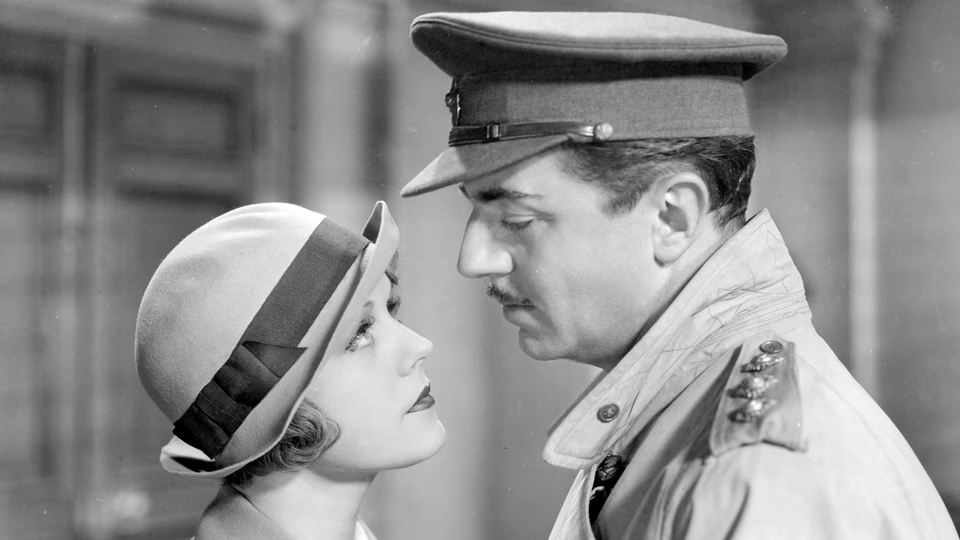The Key

In 1920 Dublin, during the Irish War of Independence, Colin Clive plays a British Army Intelligence Officer whose outwardly happy marriage is crumbling. Edna Best plays his wife, who still carries a torch for a man she had a brief affair with in England before marrying Clive a few years earlier. These unresolved feelings stand poised to drive the couple apart.
Enter William Powell as a Canadian expat serving in the British Army. He arrives in Dublin with a history of womanizing scandals smoothed over by battlefield heroics. His assigned apartment sits one floor below Clive and Best’s. Clive recognizes Powell and invites him upstairs, where he meets Best. Clive proves oblivious to the tension between the two and when he leaves, we learn Powell is the man Best has yearned for all these years. To Powell’s surprise, he realizes he still loves her too.
It’s a decent melodramatic premise, but the execution disappoints. There’s a whole second movie involving the pursuit and capture of an Irish fugitive, with kidnapping, hostage negotiation, and forged documents, that proves far more interesting.
The trouble is, Powell is miscast. First, at middle-age, he’s too old to play a womanizing daredevil who undergoes a journey of maturation. Second, though he handles the exposition-heavy script with his usual quippy delivery, his genteel persona doesn’t match Clive and Best’s reserved British performances. His dim-witted valet only adds to the dissonance. It’s as though Powell is in a different movie than the rest of the cast.
This point is best illustrated by the lone action scene, where Powell leads a squad of British troops in the titular Key, a notorious section of Dublin riddled with snipers and ambush spots. Powell proves unable to convey any sense of command or kinetic action. As his men drop from sniper fire around him, he seems lost and ineffectual, yet the script doesn’t acknowledge it, implying the scene should have been played with confidence—a tough soldier meeting strong resistance.
This film reunites Powell with his Private Detective 62 director, Michael Curtiz, who struggles to inject vigor into the proceedings. Curtiz depicts a tense basement showdown (involving Clive, not Powell) via wall-cast shadows, rendering the players larger-than-life. He also inserts a nice whip pan to enliven the script’s dead air after Clive discovers Powell and Best’s affair. But Curtiz can’t mold Powell to the grittier material, nor can he coax enough charisma from Best to overcome her underwritten part and show us what Clive and Powell see in her.
The resulting film seems unsure of its identity. Though the premise bears a superficial resemblance to Powell’s superior Road to Singapore, that film wove Powell’s urbane persona into the story and didn’t see him leading a military force against the natives. Thus, depending on your perspective, The Key plays as a romance ruined by silly intrigue and miscast supporting players or a wartime drama torpedoed by a miscast lead and tepid love story. Even the wartime drama angle feels watered down in the film’s efforts to avoid picking a side. In trying to please every audience, it ends up pleasing none.